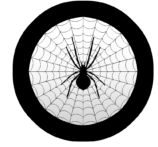I was pretty much overwhelmed by Massocki Ma Massocki, Biték – He From Whom Death Ran, Pierced Rock Press, 2020. (www.piercedrockpress.com)
This is the history of the author’s grandfather, his family, and their village as recounted by to him mainly by his father. It is dedicated to ‘the man whose story it tells: Biték bi Bimai. Rest in peace and power, Grandpa.’ It is important to add here the ‘Author’s note’: ‘While escaping from Nigeria in 1933, my grandfather left his two sons and never saw them again. Through this book, my family and I hope to connect with our relatives in Nigeria who we have yet to meet.’

The author has certainly connected me with his family’s history, with the history of the Basaa people of the village Ndog Mbog, in today’s Cameroon. It almost feels as if I am sitting listening to him telling me about the village, its buildings, family relationships, its religious, spiritual, and political systems.
Some wonderful quotes:
‘This is Mbombog Som, a Patriarch, talking to a young man: ‘….Oh, young men. You may walk faster than the older, but you do not know the way. A seated elder sees further than a standing young man…’(p.33)
‘To weaken and passively colonise African people, colonisers had to alienate Africans, meaning they had to completely uproot them from their values and principles and impose upon them imported virtues… In the village, Ndog Mbog the ancestral tradition and religion, was banished by the German colonisers. In the same vein, the Mbombogs or patriarchs were persecuted….’’ (pp.65-6)
One of the last chapters is about the history of Cameroon and the manifold struggles for independence – including that of Biték, the author’s grandfather. I almost felt as if I was there in 1978 when Biték died, wondering if I would be allowed to place flowers (with a card saying ‘thank you’), on his grave .
Massocki reflects: ‘Biték pushes us out of our comfort zones by questioning our preconceived answers to existential questions on concepts such as destiny, life after death and so on… As one of our ancient sayings goes, “The gorilla does not run away from what someone else has seen.”’
I shall read the book again – much to learn, much to reflect on…..
-Marika Sherwood
………………………………
Marika Sherwood is a British Hungarian anti racism and colonialism historian, ressearcher, educator, co-founder of the Black and Asian Studies Association and author of many books including ‘ After Abolition: Britain and the Slave Trade Since 1807’, ‘Kwame Nkrumah: the Years Abroad’ Sherwood has a desk, but is not on the staff of the Institute of Commonwealth Studies, University of London. In 2010 she was invited to contribute to the Kwame Nkrumah Centenary Colloquium in Accra, convened by the African Union and the Government of Ghana. In 2017, Sherwood was planning to give a speech about treatment of the Palestinians during University of Manchester’s Israel Apartheid Week under the title “You’re doing to Palestinians what the Nazis did to me”. The Israeli embassy intervened, contacting the university with concerns that the title violated the Holocaust Society’s and UK’s adopted definition of antisemitism. Manchester University censored the title and put conditions on the speech.


